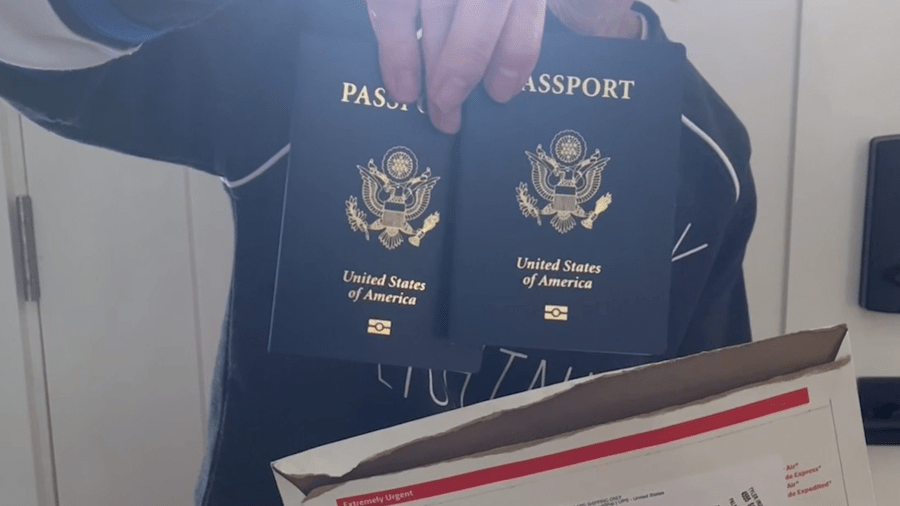TAMPA, Fla. (WFLA) — COVID-19 travel bans forced the Jennings family to skip an annual trek to visit family overseas, and this year the nation’s passport backlog took some of the joy out of the journey.
According to the State Department, 500,000 applications a week are being processed at times, but it has not been enough to keep up with the demand. Rescheduled travel that was cancelled during the pandemic is one of the potential reasons for the delays.
Alexandria Jennings applied for passports for her children in February.
The trip was more than a vacation. Her husband’s parents have never met their youngest child, and health concerns made it especially vital to visit them this year.
“Their health is not the best and his mother in particular does not travel,” Jennings said. “So, the only way that she has ever met even my older child is us going out there.”

In February, a State Department agent told Jennings there was no need to expedite her applications because there was plenty of time before her travel date.
Then, as the wait went from days to months, Jennings called to check on the status. One screen shot she saved shows a three and a half hour wait, and that was not the longest call.
“The longest wait time has been five hours,” Jennings said. “And you have to interact with that call. You have to continually engage with the call or it will disconnect.”
Fourteen U.S. Senators, including Florida’s Marco Rubio and Rick Scott, sent a letter to the State Department last week, calling the backlog “unacceptable” and questioning the “unresponsiveness to many passport inquiries.”
“What measures are being taken to decrease processing and wait times?” the senators asked. “How does the Department plan to resolve the communications issue?”
In May, the U.S. House sent a letter with several other questions, including a few about last year’s test roll out of the Online Passport Renewal (OPR) program.
“Were the potential risks of opting-in to OPR, such as longer processing times, errors, or lack of access to human assistance, made clear to applicants?” lawmakers asked.
State Department spokesperson Christopher Ashcraft said OPR has since been shelved, but is expected to be launched again at the end of 2023.
The system did help 565,000 travelers submit their applications and 99% of them have been completed, according to Ashcraft.

“Extreme frustration,” Jennings said when asked about her emotions during the wait. “Anger at times.”
That was soothed a bit Friday morning when the passports for her children arrived in the mail less than a day before their flight.
Jennings is relieved, but still troubled it took more than four months.
“We put a lot of faith in our government. You believe that you can trust them and that the turnaround times are accurate,” Jennings said. “So, had I known I was going to be in this situation I absolutely would’ve done things differently.”
Jennings credited one of Representative Anna Paulina Luna’s staffmembers with getting her passports across the finish line.
“I think you have to call your lawmaker,” Jennings said. “I think that was the difference for us.”
Congressional leaders have been invited to a question-and-answer session with the State Department that will take place next Thursday. But right now, there are no predictions for when the historic backlog will subside.






